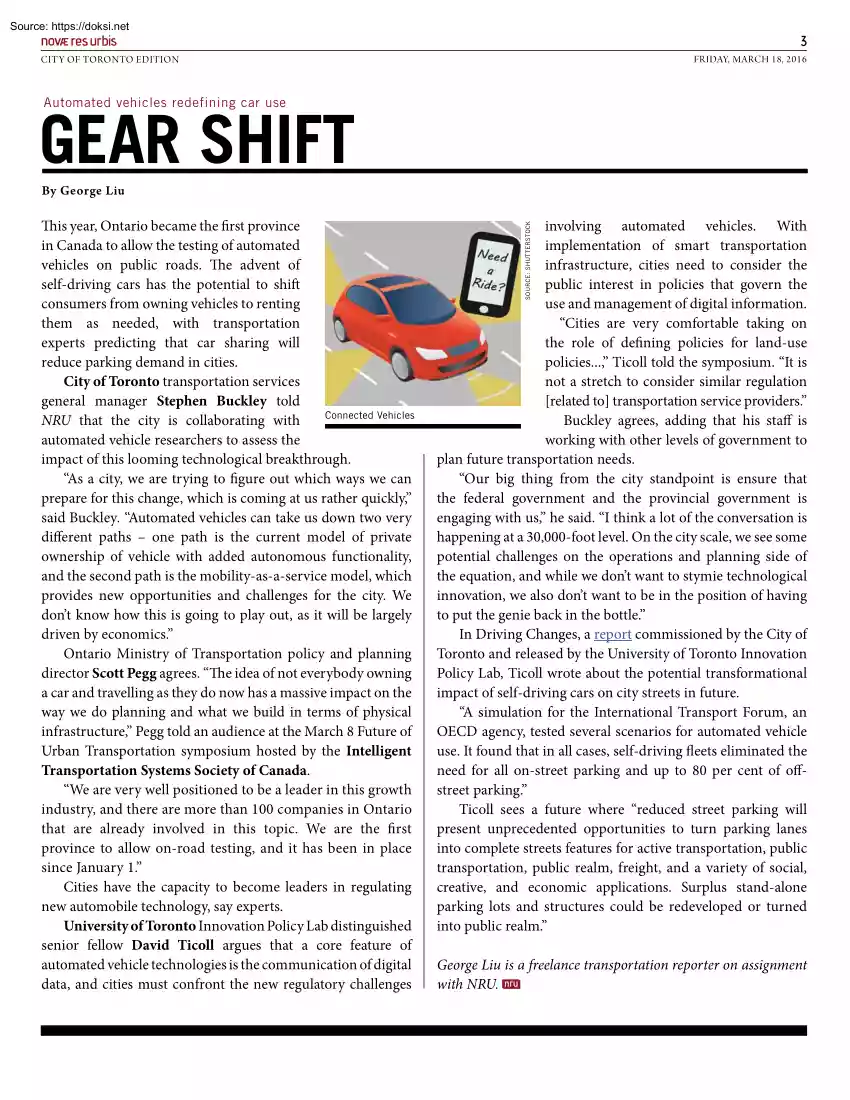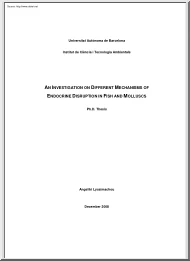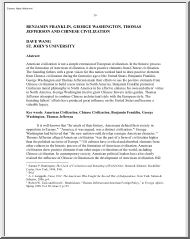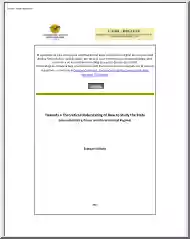Please log in to read this in our online viewer!

Please log in to read this in our online viewer!
No comments yet. You can be the first!
What did others read after this?
Content extract
3 FRIDAY, MARCH 18, 2016 CITY OF TORONTO EDITION Automated vehicles redefining car use GEAR SHIFT By George Liu involving automated vehicles. With implementation of smart transportation infrastructure, cities need to consider the public interest in policies that govern the use and management of digital information. “Cities are very comfortable taking on the role of defining policies for land-use policies.,” Ticoll told the symposium “It is not a stretch to consider similar regulation [related to] transportation service providers.” Buckley agrees, adding that his staff is working with other levels of government to plan future transportation needs. “Our big thing from the city standpoint is ensure that the federal government and the provincial government is engaging with us,” he said. “I think a lot of the conversation is happening at a 30,000-foot level. On the city scale, we see some potential challenges on the operations and planning side of the equation, and while
we don’t want to stymie technological innovation, we also don’t want to be in the position of having to put the genie back in the bottle.” In Driving Changes, a report commissioned by the City of Toronto and released by the University of Toronto Innovation Policy Lab, Ticoll wrote about the potential transformational impact of self-driving cars on city streets in future. “A simulation for the International Transport Forum, an OECD agency, tested several scenarios for automated vehicle use. It found that in all cases, self-driving fleets eliminated the need for all on-street parking and up to 80 per cent of offstreet parking.” Ticoll sees a future where “reduced street parking will present unprecedented opportunities to turn parking lanes into complete streets features for active transportation, public transportation, public realm, freight, and a variety of social, creative, and economic applications. Surplus stand-alone parking lots and structures could be redeveloped or
turned into public realm.” SOURCE: SHUTTERSTOCK This year, Ontario became the first province in Canada to allow the testing of automated vehicles on public roads. The advent of self-driving cars has the potential to shift consumers from owning vehicles to renting them as needed, with transportation experts predicting that car sharing will reduce parking demand in cities. City of Toronto transportation services general manager Stephen Buckley told Connected Vehicles NRU that the city is collaborating with automated vehicle researchers to assess the impact of this looming technological breakthrough. “As a city, we are trying to figure out which ways we can prepare for this change, which is coming at us rather quickly,” said Buckley. “Automated vehicles can take us down two very different paths – one path is the current model of private ownership of vehicle with added autonomous functionality, and the second path is the mobility-as-a-service model, which provides new
opportunities and challenges for the city. We don’t know how this is going to play out, as it will be largely driven by economics.” Ontario Ministry of Transportation policy and planning director Scott Pegg agrees. “The idea of not everybody owning a car and travelling as they do now has a massive impact on the way we do planning and what we build in terms of physical infrastructure,” Pegg told an audience at the March 8 Future of Urban Transportation symposium hosted by the Intelligent Transportation Systems Society of Canada. “We are very well positioned to be a leader in this growth industry, and there are more than 100 companies in Ontario that are already involved in this topic. We are the first province to allow on-road testing, and it has been in place since January 1.” Cities have the capacity to become leaders in regulating new automobile technology, say experts. University of Toronto Innovation Policy Lab distinguished senior fellow David Ticoll argues that a core
feature of automated vehicle technologies is the communication of digital data, and cities must confront the new regulatory challenges George Liu is a freelance transportation reporter on assignment with NRU. nru
we don’t want to stymie technological innovation, we also don’t want to be in the position of having to put the genie back in the bottle.” In Driving Changes, a report commissioned by the City of Toronto and released by the University of Toronto Innovation Policy Lab, Ticoll wrote about the potential transformational impact of self-driving cars on city streets in future. “A simulation for the International Transport Forum, an OECD agency, tested several scenarios for automated vehicle use. It found that in all cases, self-driving fleets eliminated the need for all on-street parking and up to 80 per cent of offstreet parking.” Ticoll sees a future where “reduced street parking will present unprecedented opportunities to turn parking lanes into complete streets features for active transportation, public transportation, public realm, freight, and a variety of social, creative, and economic applications. Surplus stand-alone parking lots and structures could be redeveloped or
turned into public realm.” SOURCE: SHUTTERSTOCK This year, Ontario became the first province in Canada to allow the testing of automated vehicles on public roads. The advent of self-driving cars has the potential to shift consumers from owning vehicles to renting them as needed, with transportation experts predicting that car sharing will reduce parking demand in cities. City of Toronto transportation services general manager Stephen Buckley told Connected Vehicles NRU that the city is collaborating with automated vehicle researchers to assess the impact of this looming technological breakthrough. “As a city, we are trying to figure out which ways we can prepare for this change, which is coming at us rather quickly,” said Buckley. “Automated vehicles can take us down two very different paths – one path is the current model of private ownership of vehicle with added autonomous functionality, and the second path is the mobility-as-a-service model, which provides new
opportunities and challenges for the city. We don’t know how this is going to play out, as it will be largely driven by economics.” Ontario Ministry of Transportation policy and planning director Scott Pegg agrees. “The idea of not everybody owning a car and travelling as they do now has a massive impact on the way we do planning and what we build in terms of physical infrastructure,” Pegg told an audience at the March 8 Future of Urban Transportation symposium hosted by the Intelligent Transportation Systems Society of Canada. “We are very well positioned to be a leader in this growth industry, and there are more than 100 companies in Ontario that are already involved in this topic. We are the first province to allow on-road testing, and it has been in place since January 1.” Cities have the capacity to become leaders in regulating new automobile technology, say experts. University of Toronto Innovation Policy Lab distinguished senior fellow David Ticoll argues that a core
feature of automated vehicle technologies is the communication of digital data, and cities must confront the new regulatory challenges George Liu is a freelance transportation reporter on assignment with NRU. nru




